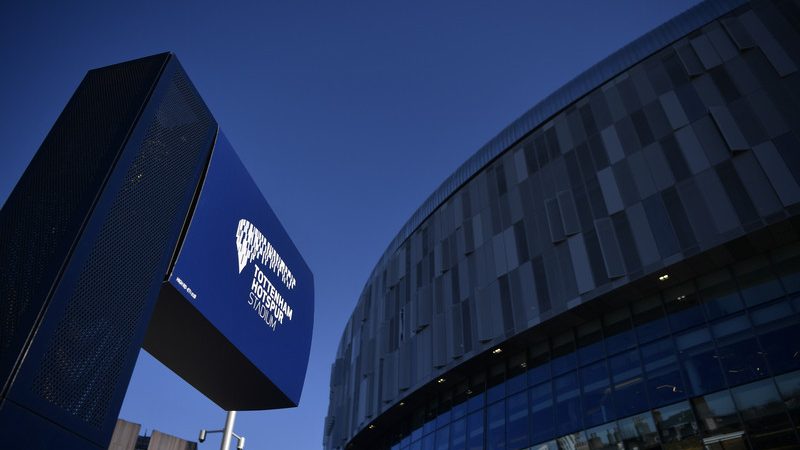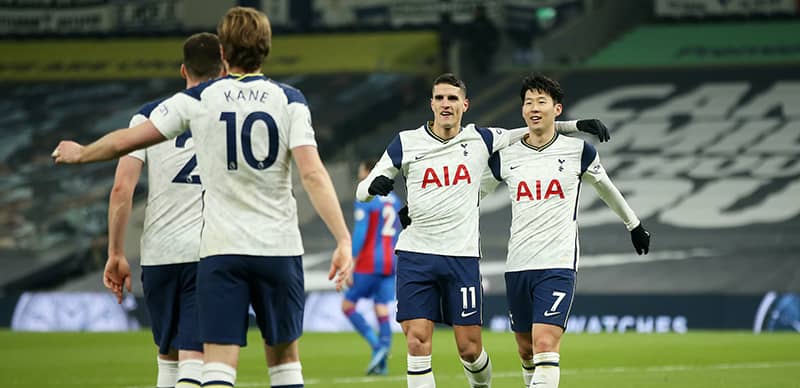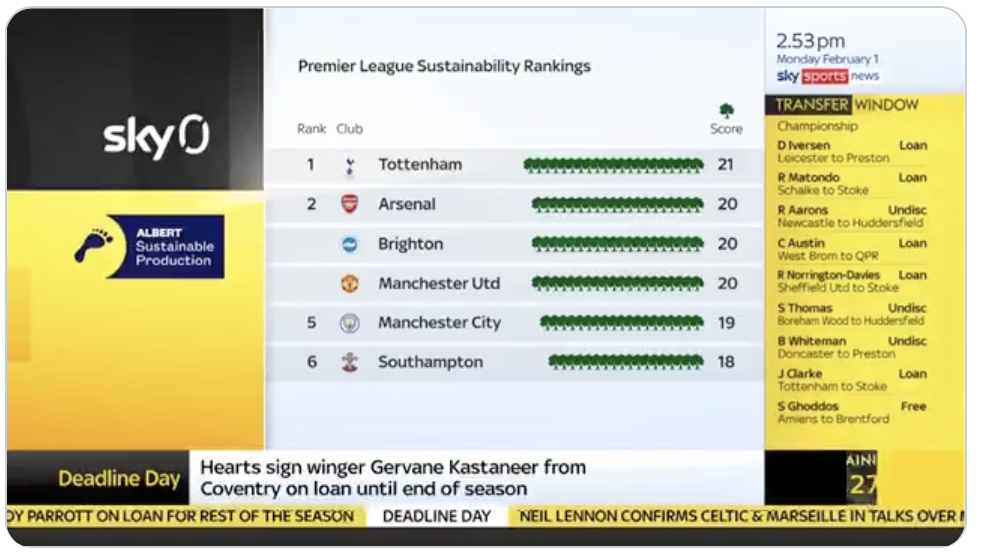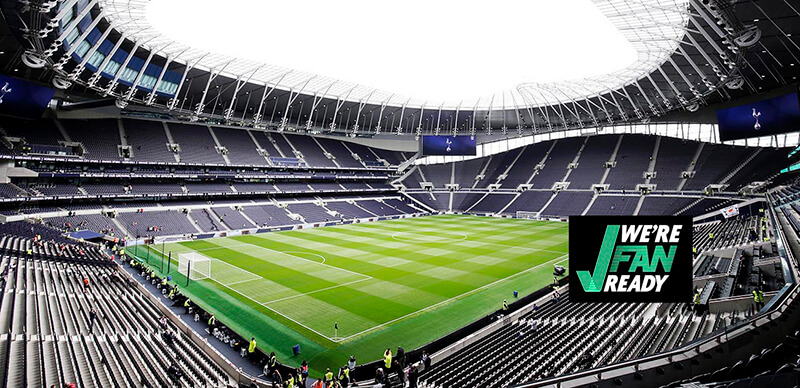Euractiv: UK Premier League clubs ranked according to environmental commitment

Tottenham Hotspur Football Club came first in this year’s EPL Sustainability Table, published by the UN-backed Sport Positive Summit, which ranks the UK Premier League’s most environmentally committed football clubs. EURACTIV France reports.








